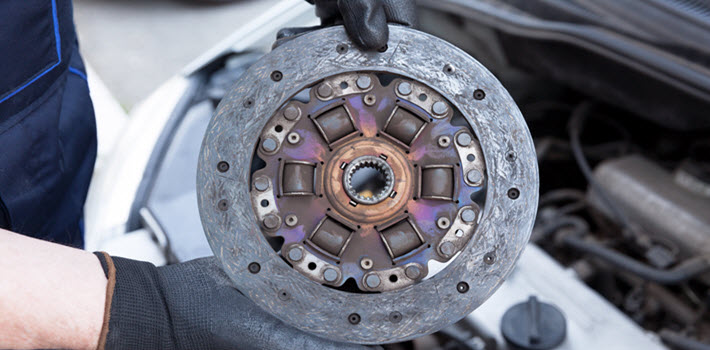The clutch assembly in any car is a crucial component for overall functioning; however, in BMWs with manual transmissions, the clutch assembly often encounters issues that require attention. It is important to be able to detect when your BMW may need clutch servicing or repair, as these luxury cars won’t perform well without a properly-functioning clutch assembly. In this article, we’ll go over the basic information you need to know about your clutch, including how to adequately address problems before they turn into serious performance issues.
What is the importance of the clutch assembly in a BMW?
BMWs are known for their power and high-end performance standards—this includes the gear-shifting mechanism that allows for powerful, quick acceleration and stopping. The clutch is the main component that allows the engine and wheels to remain connected or to disengage from each other so that the transmission can shift seamlessly. A clutch assembly is a system of parts that all work together and perform very specific functions which allows your BMW to shift gears. We’ll go over what basic components are included in your clutch assembly, but for now it’s important to know that if one single component becomes damaged, it can affect the entire mechanism and lead to premature wear of the other clutch assembly components.
What parts are generally included in a clutch assembly?
Once again, the clutch assembly as a whole forms a critical system that is ultimately responsible for shifting gears; however, if one or more of the parts included in the assembly fail, it can cause significant damages that require repair and often replacement parts. The clutch assembly includes many smaller parts that hold everything together, like bolts and screws, which can also become corroded or damaged, leading to significant problems. However, for all intents and purposes, these are the main parts of the clutch assembly that often require attention over time:
- Pressure plate
- Clutch disc
- Flywheel
- Throw-out bearing
There are a few different scenarios that can play out depending on which part of the clutch assembly encounters damage, failure, or malfunction, and it’s important to remain aware of the symptoms that go alone with various types of clutch failure so that you can spot a problem before it spirals out of control. be sure to report the symptoms you experience to your BMW specialist so that they can more accurately diagnose the issue up front.
Clutch failures: what to expect
As we mentioned before, the symptoms of clutch failure you experience will be directly related to the part that is encountering failure or issues. BMWs tend to experience any of the following types of clutch failure:
- Clutch slippage
- Shifting problems
- Intense vibration
- Odd noises
- Clutch release issues
- Clutch pedal depression issues
Warning signs to be on the lookout for
Like we said before, the symptoms that you experience are essential for the diagnostic process and should never go overlooked. Furthermore, they can offer your BMW specialist a wealth of information to help properly diagnose the issue. Here is what you can look out for in your own BMW in order to spot the signs of clutch wear or malfunction:
- Concerning noises like grinding
- Clutch pedal feel & sound – difficulty pressing down the pedal, too much give or not enough, or squeaky sounds
- Gear slipping
- Shifting issues
- Hesitation
How to detect the need for clutch repair
By informing yourself of how the clutch works and learning the other information in this article, such as the common signs and symptoms of clutch failure, you are better able to detect the need for clutch repair. However, you shouldn’t have to determine when to service the clutch on your own. Here are a few guidelines that can help you determine when to repair or service your BMW’s clutch:

- Hire a shop that specializes in BMW repair and servicing
- Stick to the maintenance schedule set forth by the BMW manufacturer
- Consult with your BMW specialist to determine whether services should be performed early or later than anticipated
- Learn how to properly utilize the clutch to avoid quick burnout or premature wear
Here at Dell’s Service Center, we serve a range of BMW clients from the areas of Green Bay, Manitowoc, and Sturgeon Bay, WI. Our diverse background of experience working with all types of BMW models has helped us become especially familiar with the most common types of clutch failure. We take a preventive approach to auto care so that we can save our clients valuable time and money. If you’d like to learn more about our expertise working with BMWs or our qualifications as an automotive shop, please contact one of our helpful professionals today.

